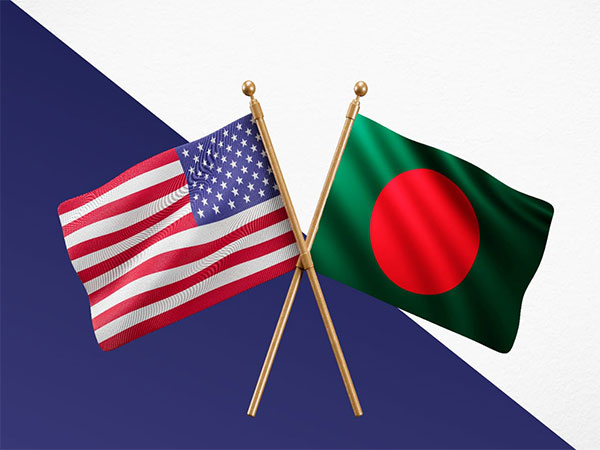

As the time of general elections is approaching in Bangladesh, the issue of US visa restrictions for Bangladesh has once again arisen.
The US unveiled a new visa policy for Bangladesh that stated, “It would deny visas to individuals, from law enforcers to political leaders, believed to be responsible for, or complicit in, undermining the democratic election process in Bangladesh.”
Foreign Minister AK Abdul Momen spoke to the media on the sidelines of the United Nations General Assembly (UNGA) in New York City. He said that Dhaka has maintained Bangladesh-US relations after Bangladesh achieved statehood and there is no stress between the two nations over Visa restrictions.
“We have no tension with the US,” he told media on the sideline of the United Nations General Assembly (UNGA) in New York, noting that the US will not grant visas only to those who will try to foil the upcoming election in Bangladesh.
“Dhaka has given a befitting reply on the US visa ban policy and said that it does not impact the current regime…opposition people should be scared” he said.
The US announced that it is taking steps to impose visa restrictions in Bangladesh for those involved in undermining the democratic process during the upcoming general elections. The announcement can be considered as a ‘follow-up’ to the initial announcement of the visa restriction policy in July 2023.
Responding media queries State Minister for Foreign Affairs for Bangladesh Md Shahriar Alam said, “Bangladesh has nothing to lose and the administration in Dhaka is not worried about the visa restriction issue, as it has done nothing wrong.”
Bangladesh’s government is confident that there will be no changes in bilateral relations between the two countries.
US Visa restriction policy has become an election issue for the opposition in Bangladesh but Sheikh Hasina’s government considers this issue as a distraction to the people.
In an effort to counter the opposition narrative Dhaka shared four cases in which the US had issued advisories regarding visa restrictions ahead of elections in other countries.
In each of the cases of Somalia, Guyana, Uganda and Nigeria the US had imposed visa restrictions in line with elections in the country. These restrictions however didn’t impact these countries bilateral relations with the US.
Bangladesh is the latest case of the US visa restriction policy on democracy and the electoral process. The US announced the policy in May 2023, seven months before the elections scheduled to take place around January 2024.
In September 2023, the US gave a follow-up statement announcing that they are starting to impose restrictions. As the poll has not taken place yet in Bangladesh, the issue is currently ongoing.
Bangladesh is the fifth case of the US visa restriction policy on electoral process. While the policy is embarrassing for the incumbent regime, the opposition is trying to capitalize on it as their narrative propagates that the policy may thwart the incumbent regime.
The government’s argument is that the four previous cases suggest that the visa policy is designed as a punitive measure for the individuals involved only in undermining the democratic process. It is hardly about changing regimes or adopting antagonizing US policy towards the respective country.
The primary aim of the visa restriction policy is to strengthen global institutions related to democracy and human rights in a way where the US would not have to adopt an antagonizing policy towards any regime or country.
Hence, the case studies suggest that visa restriction policy is not related to regime change in any country and the narratives of political opposition in Dhaka are misguided.